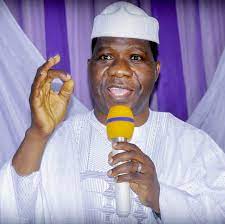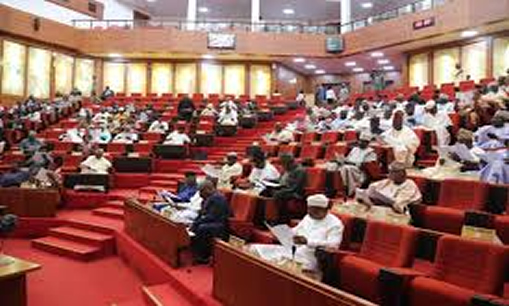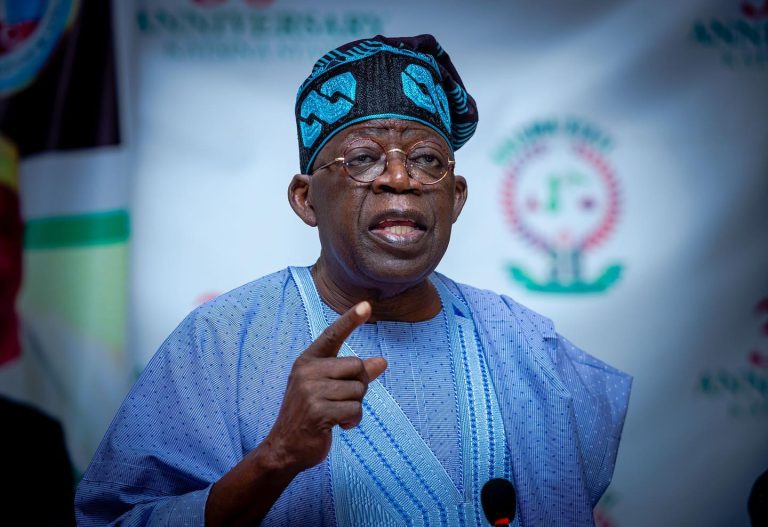Opinion
Nigeria Police wasn’t established to succeed – Senate Leader

Amid the increasing demand for an efficient and responsive police system, the Leader of the Senate, Senator Opeyemi Bamidele on Monday lamented the dysfunctionality of the Nigeria Police, pointing out that as currently constituted, the police was not properly established to succeed in the country.
Bamidele, also Vice Chairman of the Senate Committee on the Review of the 1999 Constitution, further observed that any police structure that did not reflect Nigeria’s federal realities would not effectively address the roots of security challenges facing the federation.

He made these remarks at the 2024 Distinguished Personality Lecture Series jointly organised by the Department of Political Science and Institute of Legislative Studies, University of Ilorin, Kwara State yesterday.
The lecture, titled “Constitutional Amendment and the Political Dynamics of State Police in Nigeria,” was chaired by the Deputy President of the Senate, Senator Barau I. Jibrin. He was represented by Deputy Leader of the Senate, Senator Oyelola Ashiru.
At the lecture were the Chairman, Senate Chairman on Agriculture, Senator Salihu Mustapha; Chairman, Senate Committee on Trade and Investment, Senator Sadiq Umar; Vice Chairman, Senate Committee on Police Affairs, Senator Akintunde Yunus; Vice Chancellor, University of Ilorin, Prof. Wahab Egbewole (SAN) and Director General, National Institute for Legislative and Democratic Studies, Prof. Abubakar Suleiman.
Speaking at the session yesterday, Bamidele dissected diverse socio-economic and political forces responsible for the dysfunctionality of the Nigeria Police and reeled out antidotes to the problems of policing in Nigeria.While warning against the incessant deployment of the armed forces without compliance with the provisions of the 1999 Constitution, Bamidele faulted the undue establishment and operations of vigilante groups and security outfits at the state levels without national legal framework.
Bamidele explained that the incessant deployment of the armed forces for the purpose of maintaining law and order internally was at variance with their mandate under the 1999 Constitution and did not portray Nigeria as a truly democratic and internally stable democracy.
The senate leader observed that the challenges facing the Nigeria Police “are numerous. How the police are organised, managed, governed and funded can determine its ability to deliver on its constitutional mandate of protecting the life and property of Nigerians.
“Understanding these dynamics can help in appreciating what needs to be done to improve security in the country. It is clear that Nigerians do not fully appreciate the depth and scale of the challenges facing the police.
“I maintain that the police have not been set up properly to succeed in this nation. Effective policing in Nigeria is almost impossible unless there are fundamental changes.
Indeed, the constraints faced by the police are used as excuses for various misconducts and unprofessional behaviours by many officers of the force.
“Despite many attempts by its leadership of the Nigeria Police to enforce discipline and even sack bad eggs, operational misconduct is still prevalent in the ranks of police operatives, and this undermines their capacity to decisively respond to pervasive insecurity nationwide.
”He further argued that the regular deployment of the Nigeria Armed Forces across the federation was, no doubt, an indication that the present police structure could no longer address the present security challenges of our nation. To correct these anomalies, the senate leader canvassed the adoption of decentralised police model to address a myriad of security challenges currently undermining the country’s internal cohesion and disincentivizing investors from coming into the federation.
According to him, it is self-evident that the establishment of state police will go a long way in mitigating Nigeria’s current security challenges, especially if the proper control mechanisms are put in place.
The senate leader, therefore, reeled out different measures to prevent the political elite from using the state instrument against dissenting voices if the state police is eventually adopted.Bamidele first suggested that an Independent Police Service Commission should be established to guarantee the autonomy, independence and non-partisanship of the state police at federal and state levels in matters of appointment, discipline, promotions and accountability. Such an independent police commission, he suggested, should be patterned after the National Judicial Council and utterly be insulated from the undue interference of the political elite whether at state or federal level.He observed that the adoption of a decentralised police model “is not without its political complexities.
One of the primary concerns is the potential for abuse of power by the political elite. Its critics fear that the political elite may use state police to suppress opposition political parties, critical social actors or perceived enemies.
However, according to him, this fear is not unfounded given Nigeria’s history of the abuse of police powers under the Nigeria Police.Bamidele expressed grave concern about the proliferation of vigilantes and security outfits in nearly all states of the federation without providing a legal framework for their operations.
Bamidele noted that the increase in the number of vigilante groups and security outfits, among states, might degenerate into complex crises if we fail to provide a comprehensive legal framework for their operations consistent with the provisions of the 1999 Constitution. He observed that the vigilante groups or security outfits are indirectly exercising the powers of state police outside the purview of the 1999 Constitution.
But most governments have justified their resolve to create vigilante groups on Section 4(7). “This provision expressly empowers the State House of Assembly to make laws for the peace, order and good government of the State or any part thereof. But Section 214 of the 1999 Constitution explicitly grants the federal power absolute policing powers.
“It is therefore improper for the state governments to exercise policing powers without clearly constitutional provisions or nationally defined legal framework in order to avoid undue descent into anarchy.He advocated that there should be robust mechanisms for oversight, accountability and transparency to ensure that state police forces operate within the bounds of the law and respect citizens’ rights.
“Federal oversight, independent review boards, and clear legislative frameworks are essential to prevent misuse of power. Another critical aspect to consider is the economic feasibility of state policing.
Establishing and maintaining state police requires significant financial investment. “States must be prepared to allocate adequate resources for training, equipping, and remunerating their police personnel. On its part, the federal government can support this transition through grants and technical assistance, ensuring that no state is left behind due to financial constraints.
“The path to constitutional amendment and the establishment of state policing in Nigeria must be carefully navigated. It requires broad consensus and collaboration among federal, state, and local governments.
“Stakeholders – civil society organisations, traditional leaders, and the general populace – must be actively involved in the discourse to ensure that the transition is transparent, inclusive and devoid of rancours.
“Public education and awareness campaigns are also vital to garnering support for this significant change. The benefits of state policing-enhanced security, improved community relations, and more effective crime prevention-must be clearly communicated to the Nigerian people.”Also, Speaker, Kwara State House of Assembly, Rt. Hon. Yakubu Danladi Salihu; Speaker, kiti State House of Assembly, Rt. Hon. Adeoye Aribasoye and lawmakers from the two assemblies and National Assembly were in attendance.

























